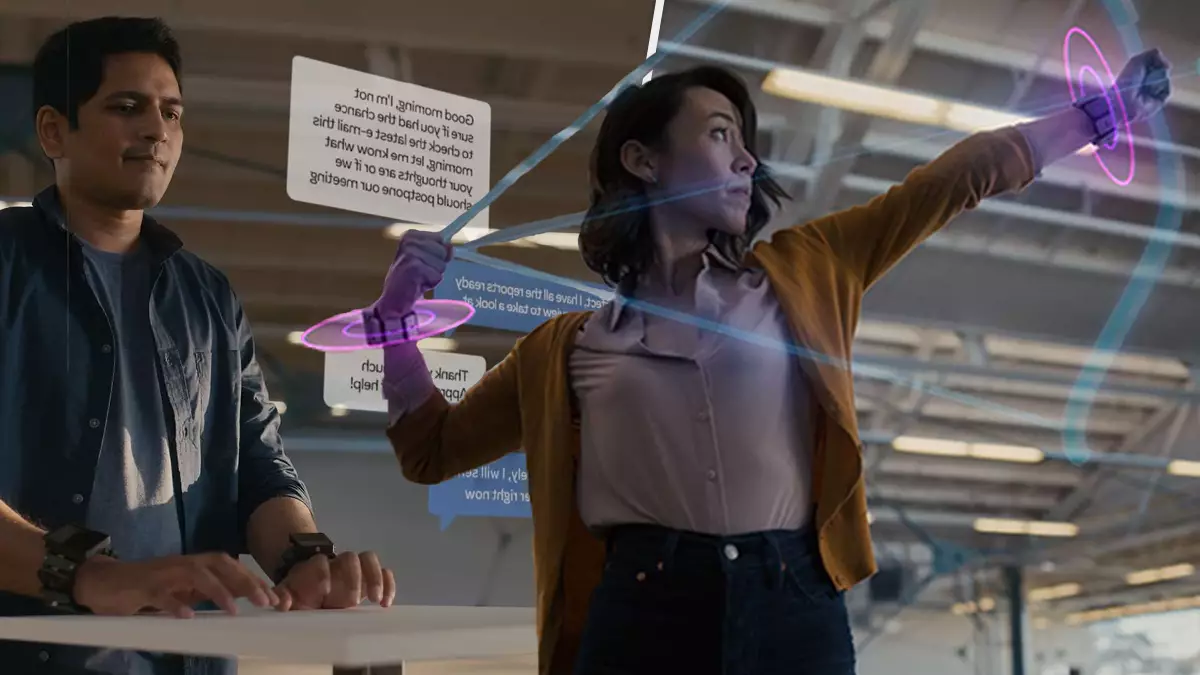
Facebook's got a new virtual reality wristband and it looks like something lifted from Ready Player One, but there are concerns over its use of vast volumes of personal data.
As shown in the video from Facebook Reality Labs, this is the prototype and at the moment, it's clunky, chunky, and carrying a lot of incredibly impressive technology inside. The wristband tracks gestures which will be termed "clicks," and will be easily completable and recognisable. The clicks will be interpreted by electromyography - sensors in the wristband pick up on electrical motor nerve signals from the brain to the hand and turn this information into digital commands. Therefore, it will be able to tell the difference between the motion of drumming your fingers on a table versus flexing your fingers to type on a keyboard. Neato.
"The signals through the wrist are so clear that EMG can understand finger motion of just a millimeter," explained the team and added that the motions are "highly personalisable and adaptable" for whatever the user requires. "That means input can be effortless. Ultimately, it may even be possible to sense just the intention to move a finger." This is very exciting for those who don't have the same strength in their hands as they used to, caused by conditions like arthritis or Huntington's disease.
Advert
As well as identifying personal likes, dislikes, and other interests from the actions of the user, this versatility might even be able to track nerve signals while typing out documents on virtual keyboards and correct common typos on the fly. Combine this with the Oculus headset that will automatically recognise hand movements without the need for peripherals or wires to translate your commands, and it's all sounding like something from Q's arsenal in a James Bond movie. Yet, we should consider the amount of personal data that could be collected by the wristband.
Speaking to BBC News, ProPrivacy digital expert Ray Walsh explained that there are dangers posed by the technology. "The opportunity to exploit people's eye movements and nerve impulses to detect whether they are interested in content offers endless potential for surveillance capitalism," he elaborated. "Legislators should look closely at the legality of this new data collection and subsequent usage to ensure that consumers are adequately protected." Furthermore, people could use the wristband to type out emails to family and friends about sensitive matters, and seeing adverts about those topics pop up elsewhere could be a kick in the teeth, so to speak.
Facebook Reality Labs is conscious of this, and integrates "Responsible Foresight" workshops with academic and embedded ethicists to "mitigate potential harms that might arise from a product." In any event, it will likely be a little while before we see these on the shelves, and the wristband might be even more advanced by then.
Featured Image Credit: Facebook Reality LabsTopics: News, virtual reality